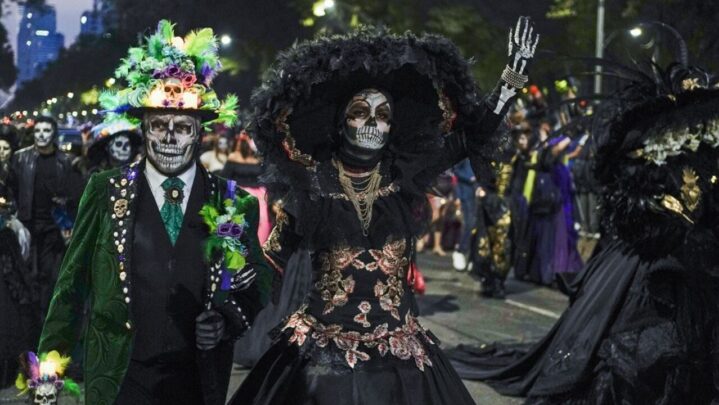The living commemorates and respects their loved ones who are gone during the Mexican holiday known as the Day of the Dead, which is celebrated in late October and early November.
As loud music plays from speakers, marigolds line the streets. In order to document the yearly, happy celebrations, both adults and kids dress as skeletons and snap pictures. On the Day of the Dead, also known as Dia de Muertos, it is thought that people can communicate with their departed loved ones.
Nobody knows when the first celebration occurred, although Andrés Medina, a researcher at the National Autonomous University of Mexico’s Anthropological Research Institute, said that it had its origins in pre-Hispanic agricultural traditions. After the Spanish invasion in 1521, Catholic customs were included in the festivities.
According to ancient tradition, maize gets buried after it is sown and spends some time underground before reemerging as a plant, Medina added. When compared to a bone, which is said to be the source of all life, the grain of corn is viewed as a seed.
Skeletons are a prominent part of Day of the Dead celebrations today as a representation of the bones returning to the living world. The deceased briefly vanish and then reappear every year, like seeds sown in the ground.
The observance also revolves around altars. On their family altars, which include paper-cut ornaments and candles, families display pictures of their ancestors. Additionally, they are ornamented with gifts of things that the deceased previously cherished. It could come with a plate of mole, a bottle of mezcal, cigars, chocolates, and tortillas.
According to Medina, traditional altars might be decorated in a way that reflects a Mesoamerican belief that the world is divided into layers. But not everyone uses or is aware of this approach.
Source: The Indian Express
341
Also Read: On A Tour To Mexico? Check Out The Classic Food Of Mexico





